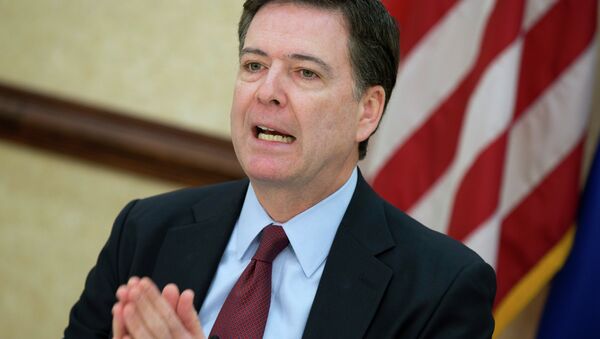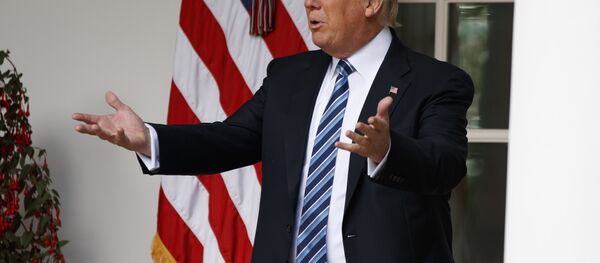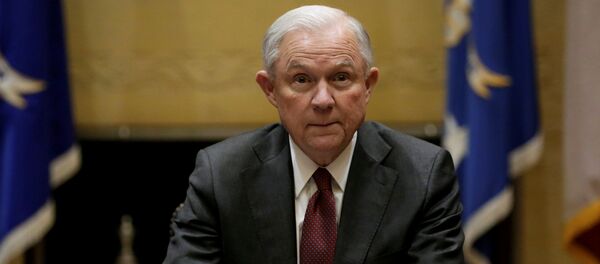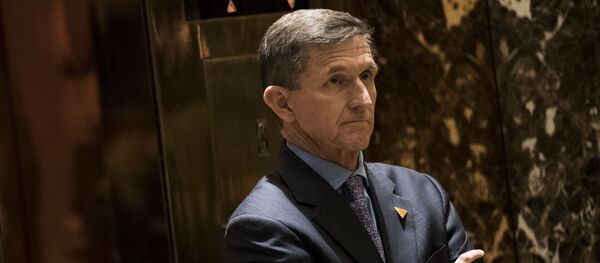Among those points are Comey's revelations that he assured the president more than once that he was not under investigation for connections to Russia, that the president asked him for "loyalty" and that the president urged the FBI to drop their investigation into then-National Security Adviser Michael Flynn.
Comey also revealed that recording conversations was not standard practice for him, but one he began early on in his interactions with Trump.
"I have not included every detail from my conversations with the president," Comey stated, indicating that there may be more information forthcoming from his one-on-one meetings with Trump regarding salacious and unverified accusations of the leader's conduct prior to his election to public office.
Comey writes that during a January 6 meeting, he assured Trump that there was no current investigation into his actions and behavior.
The FBI and the US intelligence community "were not investigating him personally," Comey told the president.
Following the January 6 meeting, Comey writes that he was motivated to write down notes to "memorialize" his conversation with Trump, something he had never done under former President Barack Obama. He would continue the practice throughout the remainder of his tenure as FBI chief.
Comey stated that he remembered "nine one-on-one conversations with President Trump in four months — three in person and six on the phone."
During these conversations Comey stated that, among other issues, he felt that the president was offering him a "patronage relationship," and countered with the assertion that Trump "could always count on me to tell him the truth."
Trump responded: "I need loyalty, I expect loyalty."
Comey was shocked and did not move in his chair in the "awkward silence that followed."
"You will always get honesty from me," Comey recorded as his reply.
"[Trump] paused and then said, ‘That's what I want, honest loyalty.' I paused, and then said, ‘You will get that from me,'" Comey's testimony reads. "As I wrote in the memo I created immediately after the dinner, it is possible we understood the phrase ‘honest loyalty' differently, but I decided it wouldn't be productive to push it further. The term — honest loyalty — had helped end a very awkward conversation and my explanations had made clear what he should expect."
In a February 14 meeting with Trump, Comey, discussing the resignation of Mike Flynn, stated that the president said to the FBI chief, "‘I hope you can see your way clear to letting this go, to letting Flynn go. He is a good guy. I hope you can let this go.' I replied only that ‘he is a good guy.' (In fact, I had a positive experience dealing with Mike Flynn when he was a colleague as Director of the Defense Intelligence Agency at the beginning of my term at FBI.) I did not say I would ‘let this go.'"
Comey stated that he "understood the president to be requesting that we drop any investigation of Flynn in connection with false statements about his conversations with the Russian ambassador in December," and that "it was very concerning, given the FBI's role as an independent investigative agency."
The former FBI chief that asserted in his testimony that he and other intelligence chiefs would "not abide" with Trump's request to drop the investigation into Flynn.
Increasingly uncomfortable with the ongoing talks with Trump, Comey stated that he approached Attorney General Jeff Sessions to "implore the Attorney General to prevent any future direct communication between the president and me."





